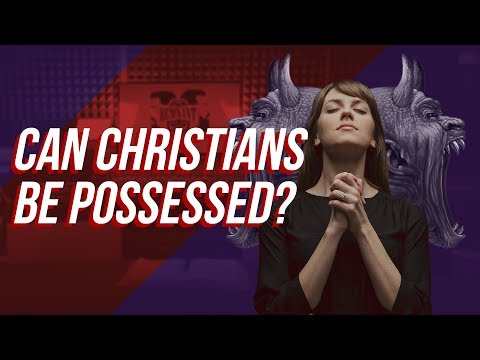CHURCH OF NIGERIA (ANGLICAN COMMUNION)
DIOCESE OF WARRI
CLERGY BIBLE STUDY HELD AT THE GOOD SHEPHERD CHURCH, DDPA IGBUDU, WARRI
ON TUESDAY JUNE 20, 2017
GENERAL THEME: THE EPISTLE TO THE GALATIANS AND THE 21ST CENTURY CLERGY
TOPIC: GALATIANS CHAPTER TWO
Opening Prayer: Almighty God, the Substance of our calling, grant us we pray You an in-depth study and proper digest of Your Word, that our ministry will be propelled with a fresh sense of commitment and absolute devotion, through Jesus Christ our Lord and Saviour. Amen.
Introduction: Building on the substance of the introduction on the book of Galatians by our lord bishop and the study carried out on chapter one; we can make progress to go straight into the study.
V1: Paul believed in and promoted the idea of companionship and collaboration in ministry, hence, he had to employ or covet the companionship of Barnabas and Titus. How do we treat companionship today in our ministry, especially as senior and junior clergy in a parish or an archdeaconry? Do we not often portray the manifestation that we can do it alone and nobody can do it better? Don’t we sometimes act antagonistically one against another when we feel that a fellow clergyman is manifesting certain God endowed peculiarities? Read 1 Corin. 3:5-9. Can we claim to be enjoying effective partnering in our ministerial exploits and pursuits?
V1: Paul’s conversion is believed by some scholars to be around AD 35. His mention of 14 years is believed to have been calculated from his conversion. It is also evidently clear that this trip to Jerusalem was not his first. His first trip most probably may have been around AD 36. Acts 9:26-30 could be an indicator to this fact. Acts 11:29-30 and Galatians 2:1-10 are other indicators of other trips Paul made to Jerusalem.
V1: It is also a scholarly proposition that Paul must have undergone some ministerial mentoring and tutoring from some spiritual fathers for the 14 years mentioned, before launching into his ministerial exploits though he was academically updated; Gal. 1:16-17. Could this be the thought of our church fathers that propelled them to initiate the diaconate ministry? But a very pertinent question will arise; what exactly are the deacons and junior priests today learning; especially with a view of sustaining the physical and spiritual health of the Liturgy, etc.
V2: Paul’s ministerial exploits were strongly and firmly regulated by the inspiration and direction of the Holy Spirit, though the urgency of the proclamation of the Gospel was very visible. It is pertinent to note that we are in a world where ministers of God have become specialized in directing the Holy Spirit in the direction of personal interest or church interest. Our maximum productivity in this ministry will largely be visible when we are fully obedient and meticulously submissive to the inspirations and instructions of the Holy Spirit. Can we truly say that many of our Revivals are Holy Spirit initiated? Could they be assessment initiated or even personal needs?
V2: Also, Paul was careful enough to put under check and meticulously monitor his ministerial exploits and labours, both past and present, with a view of avoiding failures and growing the exploits. How well are we monitoring our labours in this ministry? It is no longer news that we celebrate “monuments” instead of “movements” today. How many of our parishioners are properly focused in the pursuit of making heaven? Could all of these suggest the reason why in some cases a priest is posted to a new station he has to start afresh? Also, we may be shocked if we do a critical analysis of our members who have stopped coming to church.
V3: It is evidently clear that Paul had outgrown sentiments of diverse kinds in his ministry. Hence, he whole-heartedly accepted the partnership of Titus. Today, sentiments of diverse kinds are strongly threatening the steady growth of the gospel. Although, we are growing fast, we need to grow above tribal sentiment that is ravaging the church of God and holding many Christians hostage.
V4: The matter of circumcision became an issue through which infiltrators penetrated the church. A lot of pretenders and false brethren and preachers have invaded our churches today, as it happened in the days of Paul, through the vehicle of certain doctrinal, spiritual, moral, societal issues, etc. With the subtle infiltration of these deceivers and synagogues of satan many of our innocent parishioners have been held in captivity and grossly defrauded. The pertinent question that is crying for answer is; what kind of ministers and preachers are we inviting to our churches today especially with our fund raising agenda and focus, no matter the season in our church calendar. Some of our members have been wounded emotionally, spiritually, physically, financially, etc.
V5: Paul fought to oppose false teachings and upheld the truth with all persistence. We need a persistent effort to adequately deal drastically with the growing trend of heretical and false teaching in Christendom today; “once saved, forever saved”.
V6: Considering how favoritism is dragging the church into a wilderness of carnality, Paul was inspired to drag the attention of the church to the fact that God does not show favoritism at all. Read Rom. 2:11, Gal. 2:6, Eph. 6:9. Today, favoritism is on display in many of the churches such as; raising ministers at local levels for theological training, giving special preferences to some financial pillars in the church, etc. Favouritism can also be seen in an archdeaconry or in a parish where we have a number of priests working together, proposing parishioners for knighthood, attending parishioners’ ceremonies, praying for parishioners with different societal status, etc.
Assuming as a Vicar, you are praying for a member who came forward for thanksgiving with three tubers of yam and one fowl, and suddenly raise your head and saw the next family ready to come with four rams or a cow and three bags of rice, 20 tubers of yam, groundnut oil, will you not summarize your prayers for the family at the altar? Is it true that some members come to us for prayers and we go to some for prayers (prayer dispensers)? Who receives more applause during donations; one who donates five thousand naira (N5,000) or the one who donates one hundred thousand naira (N100,000)? Is it true that the widow in the bible who dropped her widow’s mite, commended by Jesus, would have been looked down upon by us ministers if it had happened in our time?; Mark 12:41-44; Luke 21:1-4; James 2:1, 9; 1Tim. 5:21.
V7: Paul was focused in his ministry. He knew the specific direction of his calling, that he was entrusted with the task of preaching the gospel to the Gentiles. We need to be fully focused in our individual calling, so that we will not be working outside our calling and be able to maximize the grace of God upon us. There are a lot of distractors today that we need to stay away from, such as; worldly pursuits of diverse kind, etc.
V8: Paul saw his call to be specifically inclined to the Gentiles while Peter was called to minister to the Jews. We must note that every call has a divine direction and a divine specification. The place of maximum productivity in ministry is largely determined by obedience to the specification of our calling.
V9: The perceived grace in Paul: It is significantly interesting to note that the brethren extended the hand of fellowship to Paul and Barnabas only after they had been able to discern the grace with which Paul was operating. Today, we are giving the right hand of fellowship to devourers, deceivers, magicians, trick stars, specialist in fund raising etc, who have regularly and persistently devour our members. The God of accountability is watching and waiting for us.
V10: Paul and his companions were admonished to remember the poor. How do we treat the poor, especially as they are incapable of supporting our gigantic projects? How do we even treat those who once were financial pillars but today are financially crippled?
V11-19 – A holy confrontation: Paul (a growing minster, a curate, etc) gave Peter (a senior minister, a venerable, etc) a sharp rebuke and holy confrontation because of an element of bias (or double standard) in his ministry. Peter withdrew his companionship with the Gentiles because of fear of the circumcised Jews. Peter’s hypocrisy was transferred to others, which later led Barnabas astray. Today, we practice different degrees of hypocrisy. We do certainly carry out certain statutory and liturgical practices when the bishop is around and abandon the same in the absence of the bishop. This perhaps accounts for the ignorance and corruptions exhibited by some in our Christian and liturgical practices. Just as Barnabas was led astray by the error of a highly respected father in God so are many been led astray today. Could this account for the ignorance and deformation of the liturgy by junior priests, although some senior priests are not left out? Let us be mindful of the fact that the dynamism of the liturgy does not allow for the deformation of the same. Let us watch it.
Paul placed great emphasizes on justification by faith in the Lord Jesus Christ.
V20: Paul declared his true spiritual status, that he has been crucified with Christ and Christ is presently living in him, acknowledging very passionately the grace of God on display in his life. In today’s world, the search for Christians who have been crucified with Christ is almost becoming a mirage. Some Christians express selective crucifixion i.e. crucified with Christ in specific areas e.g not in the area of money etc. May God help us. Can being crucified with Christ be partly and wholely?
V21: Paul acknowledged very strongly that he did not set aside the grace of God and did not frustrate the grace of God in any way. Today, by some of our actions and activities we are setting aside or frustrating the grace of God.
QUESTIONS FOR DISCUSSION
- What are the characteristics of a life that is crucified with Christ? Discuss.
- Mention and discuss some of the omissions and commissions we promote today in the presence and absence of the Diocesan, especially with the advent of the 21st Century Pentecostalism.
- In what ways are ministers of God frustrating the grace of God today? discuss, with practical experiences.
- How can we effectively improve our companionship in ministry, especially with the ever increasing misunderstandings between the senior and junior clergy?
- What are the factors that are presently hampering effective companionship in ministry in Warri Diocese? Discuss.
Conclusion: Our rich Anglican heritage, our highly esteemed calling, our faith and our liturgy is under fierce attack. Let us therefore call on our God to supply the needed grace as we say the concluding prayer;
Concluding Prayer: Almighty God, the Source of our calling and the Supplier of ministerial grace, grant we pray Thee the grace to discard the irrelevant and unimportant pursuits in our ministries and the wisdom to pursue the heavenly based ministerial values, with thoroughly focused minds and visions, through Jesus Christ our Lord. Amen.
Prepared and Presented by
Rev. Canon Terry E. Olokor





